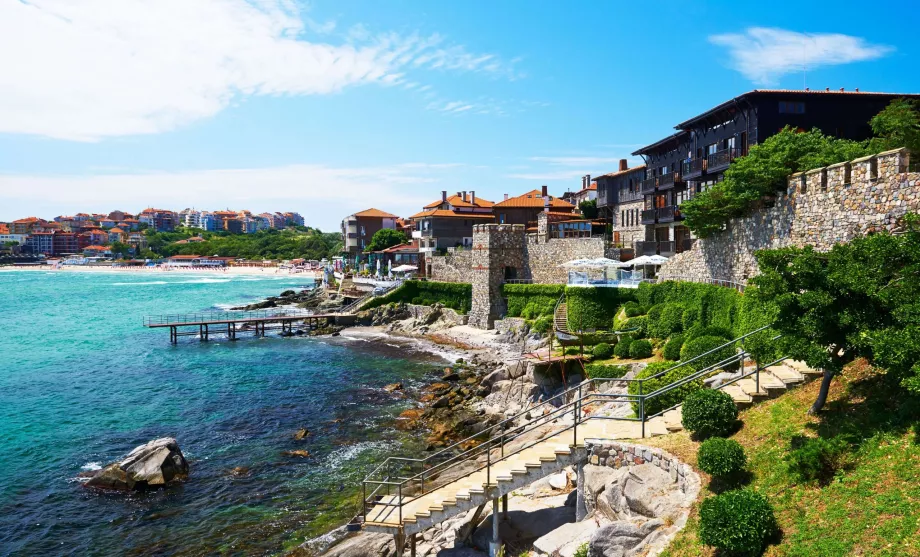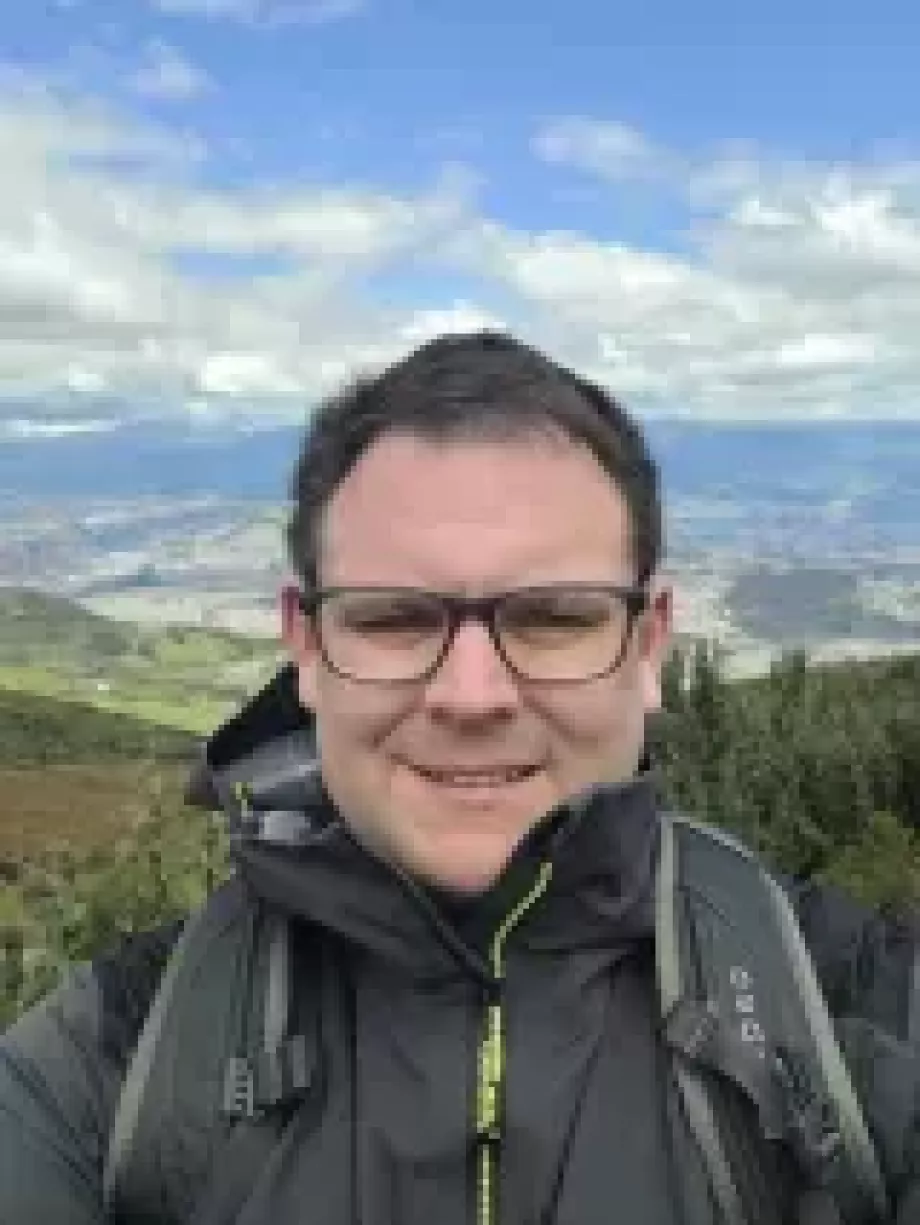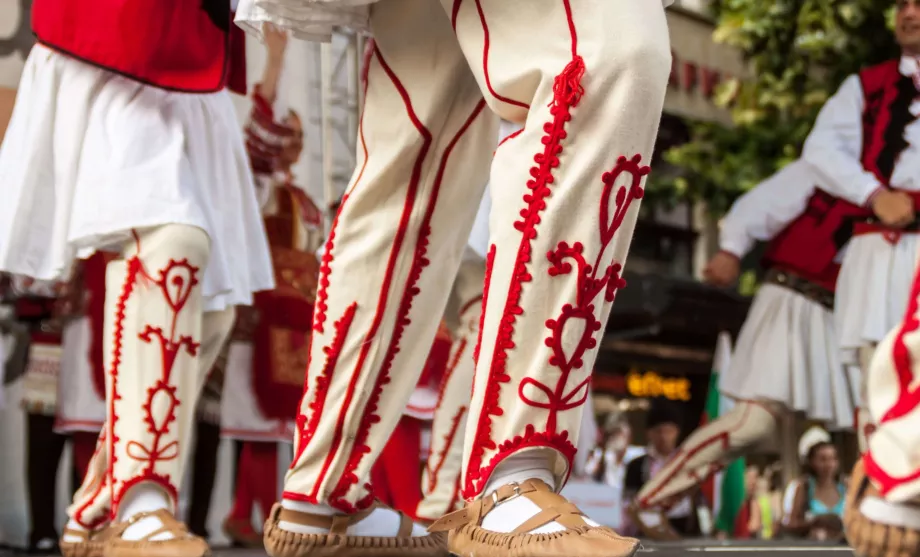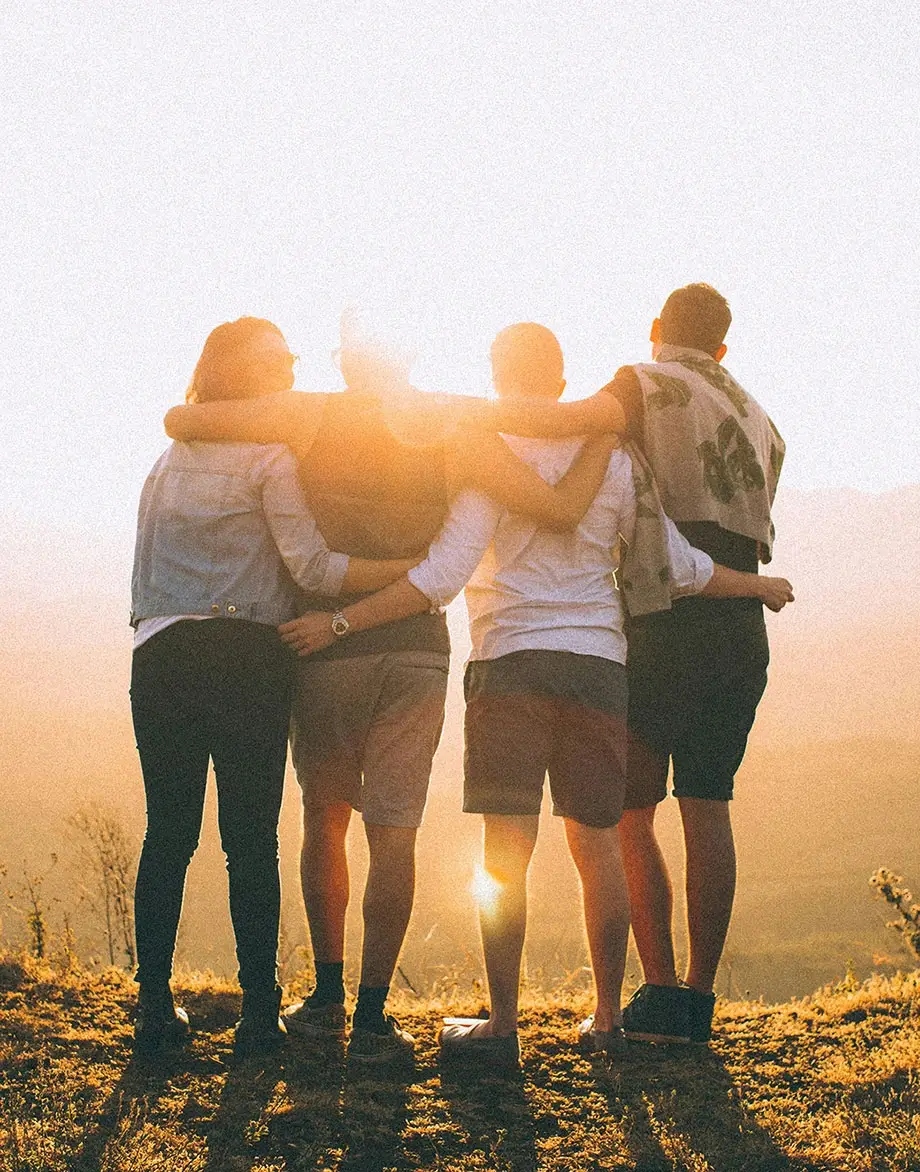Culture and history of Bulgaria

How easy is it to speak English in Bulgaria? What are Bulgarians like and when are shops closed in Bulgaria?
Search for accommodation in Bulgaria
Language
The official language is Bulgarian, spoken by 85% of the population. Other minority languages spoken are Turkish and Romanian.
As such, Bulgarian has undergone considerable development and, due to the influence of neighbouring languages, the form of the language itself has moved quite far from the Slavic type.
Bulgarian uses the Cyrillic alphabet and not the Latin alphabet. However, most signs in tourist centres or on road signs are in both Cyrillic and Latin. The basics of reading Cyrillic are useful for example in local transport in rural areas where Latin is not much used.
Knowledge of English and foreign languages
English is only spoken on a limited basis in Bulgaria. Many people know basic English and you can get by with common English phrases in the service sector.
However, if you want to ask in English about something other than what the service you are using is about, you won't get along very well.
Of the other languages, Russian is widely spoken.
The mini-dictionary
- Hello - Dóbar dén
- Good morning. Dobró útro
- Goodbye. Dovíždane
- Thank you. Blagodarjá
- Please - Mólja
- You're welcome. Njama zašto
- Excuse me. Izvinětě
- I don't understand - Ně vi razbiram
- I don't - Ne
- Yes. Da
- Where? Kadé?
- Station - Gara (гара) / autobusové nádraží – Avtogara (автогара)
- Beach - Pljaž (плаж)
- Timetable - Razpisanja (разписание)
People
Bulgaria has only 6,385,000 inhabitants and one of the lowest population densities of any European country.
Bulgarians are moving in large numbers to Western Europe for better jobs and the country is depopulating at the fastest rate of any EU country.
Most of the population lives around the capital Sofia or in the coastal areas.
The national mentality corresponds to the south-eastern part of Europe. Bulgarians are a bit hot-tempered, they like to socialize, they like to quarrel and they like to reconcile. They are often a bit lax and many things do not bother them at all, for example a bit of mess on the streets is the accepted norm.
Very often you will find casual attitudes and general improvisation. Bulgarians are Slavic and make up almost 90% of the population. The other minorities are Turks, Armenians and Roma.
Bulgarians are friendly to tourists, but sometimes too friendly. Then it is usually just an affectation in order to lure extra money out of you somehow. This is very often the behaviour of waiters, operators of small private hotels, tour guides or various sellers of tourist services.
Religion and faith
Over 62% of Bulgarians adhere to the Bulgarian Orthodox Church and around 10% to Islam.
The locals are very religious, which is matched by the extraordinary density of churches that can be found literally on every corner. Religion also implies that Bulgarians are a fairly conservative people.
Despite this, religion is not a prominent issue in society and you will not encounter religious radicalism in Bulgaria.
Holidays
In tourist areas, most shops are open until midnight. Outside the seaside resorts, the standard opening hours for services and small shops are until 7pm and supermarkets until 10pm.
Shops and restaurants remain open on Sundays and public holidays.
Public holidays
- 1 January - New Year
- 3 March - Liberation from Ottoman rule (1878)
- 1 May - Labour Day
- 6 May - St George's Day, Day of Valour and the Bulgarian Army
- 24 May - Sts. Cyril and Methodius Day, Day of Slavic Culture and Education
- 6 September - Day of the unification of Eastern Rumelia with the Principality of Bulgaria (1885)
- 22 September - Independence Day (1908)
- 1 November - Day of National Builders
- 24, 25, 26 December - Christmas
On these holidays all offices, financial institutions are closed.
Generally Bulgarians love and celebrate all holidays and family events like weddings, birthdays or religious ceremonies. The wine and carnival festivals are also very popular, where traditional costumes are not missing and the traditional choro wheel dance can also be seen.
Culture
Bulgaria organises many interesting cultural festivals and events throughout the year.
You can look forward to the folklore festival "Golden Rebeck", the folk "Rose Festival" in Kalzanak, or the music festival "Madara". From our own experience we have to say that Bulgarians are amazingly natural and spontaneous, and so many folklore festivals have thrilled us. Even most of the festivals and events are free.
History in a nutshell
The oldest and first known inhabitants of Bulgaria were the Thracians. In the past, the territory of Bulgaria was part of the empire of Alexander the Great, the Roman Empire or the Byzantine Empire.
The first Slavs entered the territory of present-day Bulgaria in the 6th century. Although the first Bulgarian state was founded in 681 by Khan Asparukh, it was weakened and occupied many times by other states or empires. Bulgaria finally gained its independence from the Ottoman Empire in 1908 under Prince Ferdinand. Bulgaria went through the 1st and 2nd Balkan Wars and the 1st and 2nd World Wars.
In World War II, Bulgaria fought alongside Nazi Germany, but in 1944, it concluded an armistice with the USSR, Great Britain and the USA and switched to the Allied side.
Until 1989, the People's Republic of Bulgaria was under the rule of the Communist Party. In 2004 Bulgaria became a member of NATO, in 2007 a member of the EU and in 2024 a member of the Schengen area.
Tourism
Bulgaria is a very diverse and beautiful country. In the summer you can spend your holidays by the sea in the popular resorts of Sozopol, Golden Sands, Albena, Burgas and Varna.
In winter, skiing is possible in the mountain centres (for example Bansko in the Pirin Mountains or Pamporovo in the Rhodope Mountains).
The tourist infrastructure in Bulgaria, especially in the seaside resorts and large cities, is very well developed with a full range of services.
Bulgaria has a very dense network of tourist hostels in the mountains, called chalets, with tourist signs running between them. Accommodation costs around 5 eur, which is matched by the facilities. It's a good idea to bring a sleeping bag. Another accommodation option is in shelters, which are similar to bus stops in our country. There are usually benches, a table and sometimes a fireplace.
And those who like to sleep in the fresh air can camp almost anywhere without penalty.
Any questions left?
If you have any questions or comments about the article...


